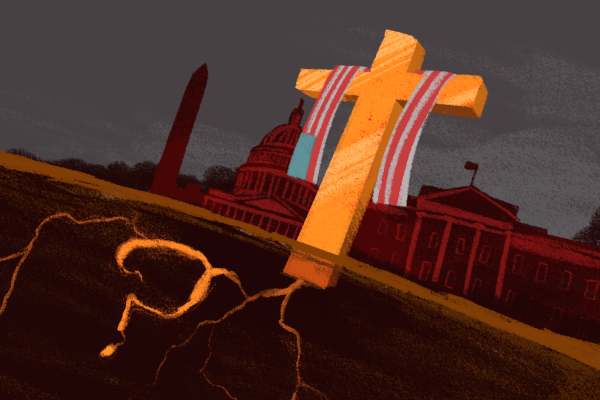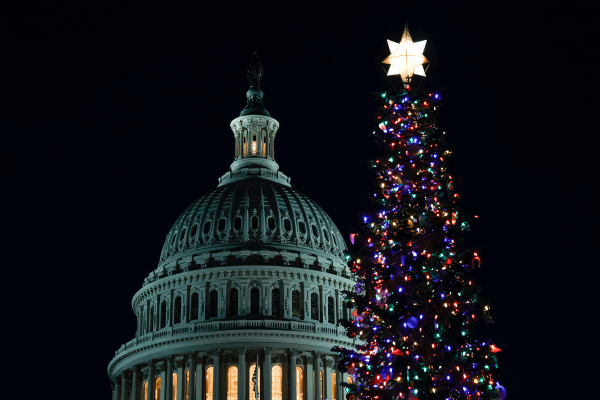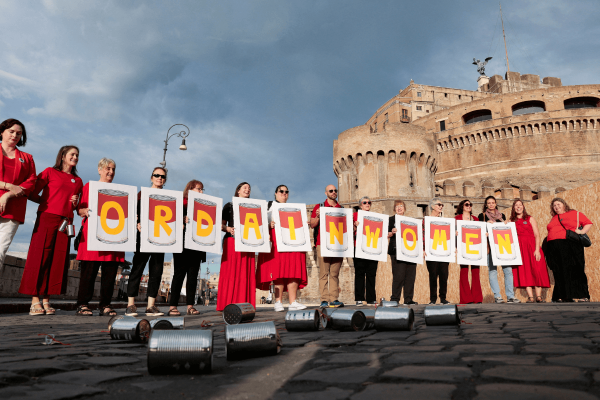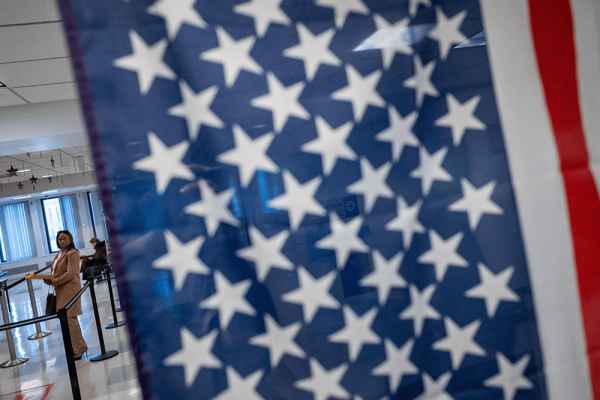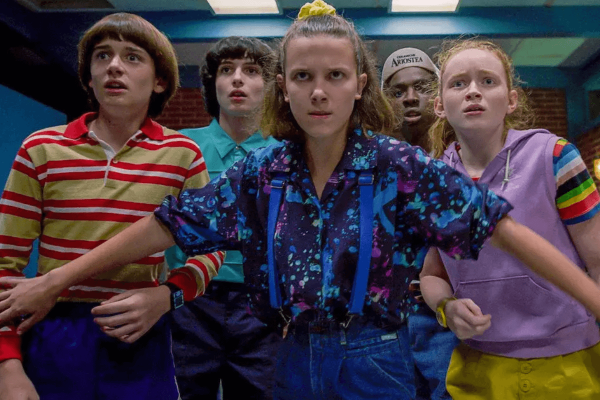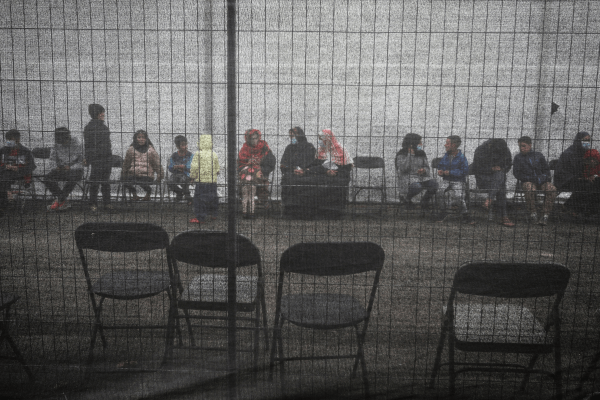Sufjan Stevens’ Songs for Christmas boxset includes a memoir essay about how the smell of a burning spatula sent him tumbling into old Christmas memories and, eventually, something like a spiritual revelation—“a tragic-comic-sentimental shock that was simultaneously mundane and supernatural.”
In the vision Stevens describes, the smell of melting plastic becomes a portal to the whole universe, past and present, and “at the very center of the universe I saw the Christ Child … This was the mysterious Incarnation of God. It feels about right that Stevens would treat Christmas like both a theological mystery and a craft-store accident.
For five years now, Sojourners has created a list of our favorite films of the year. And because we’re Sojourners and not Vulture or IndieWire, our list follows a different set of priorities. We only focus on films that are concerned with spirituality or justice (or when we’re really lucky, both).
This year, more than any of the other four years we’ve done this round-up, I was struck by the sheer number of films grappling with faith and justice.
Over the past several months, the Department of Homeland Security has steadily released promotional videos recruiting Americans to join DHS agencies like Immigration and Customs Enforcement. These videos include clips of military agents loading into armored vehicles, bombs falling from planes, and overhead shots of barren cities.
One of my least favorite December rituals is putting up Christmas lights. I loathe having to untangle the strands and can never quite summon the patience to put them up as beautifully as many of our neighbors. Needless to say, our house will never win any Christmas light competition. At the same time, I love the beauty of a well-adorned house, glowing with light that cuts through the darkness and communicates joy.
But before we get to the light, we must first contend with the darkness.
A high-level Vatican commission voted against allowing Catholic women to serve as deacons, maintaining the global Church's practice of all-male clergy, according to a report given to Pope Leo and released on Thursday.
The commission, in a 7-1 vote, said historical research and theological investigation “excludes the possibility” of allowing women to serve as deacons at this time but recommended further study of the issue.
In late November, a child care worker at The PLACE, a refugee center in Amarillo, Texas, reported to work with a worried look on her face. She asked Brady Clark, whose community development nonprofit helps run The PLACE, if the latest announcement from the Trump administration would affect her family. She was referring to a memo from U.S. Citizenship and Immigration Service announcing it would re-interview all refugees admitted under President Joe Biden and beyond—an estimated 233,000 people.
The USCIS memo, dated Nov. 21, said the agency will terminate the refugee status of people already in the U.S. if they are found not to meet refugee criteria. The memo claims the Biden administration potentially prioritized expediency, quantity, and admissions over quality interviews and detailed screening and vetting.
From 2023 to 2024, I served as a Jesuit Volunteer with the purpose of helping educate high school students. I was repeatedly left awestruck by how easily young people today become dependent on and how effectively they can navigate online spaces.
The early seasons of Stranger Things hit different in 2025. I realized this as I rewatched the series ahead of the final season’s premiere. Watching federal agents sow mistrust and harm children no longer seems like a sci-fi nostalgia trip, and the creeping evil influence of the Upside Down feels more like commentary on current events than a Stephen King pastiche. In fact, in fighting for the world they want and practicing radical solidarity, the kids in Hawkins, Ind., teach us exactly the lesson we need for right now. Stranger Things might even be a modern-day parable.
When the show debuted in 2016, it was a smash hit and proved that Netflix could compete in the original-content arena. Following a group of teenagers and the adults they trust in a fight against the forces of evil, the show owes much of its success to ’80s nostalgia. The group has fought various monsters over its seasons, many of which took cues from Dungeons & Dragons, but Season 4 took a more psychological turn, focusing on a being that feeds on the ongoing trauma people in Hawkins have experienced in their personal lives.
As the Apostle Paul warns us in 1 Timothy 6:9: “But those who want to be rich fall into temptation and are trapped by many senseless and harmful desires that plunge people into ruin and destruction.” And if you want proof of Paul’s words, look no further than the release of Jeffrey Epstein’s emails.
U.S. President Donald Trump’s administration has ordered a broad review of all refugees who entered under former President Joe Biden, an internal U.S. government memo seen by Reuters said, an unprecedented move that could reopen cases of thousands who sought U.S. protection.
The order would apply to about 233,000 refugees who entered between Jan. 20, 2021 and Feb. 20, 2025, according to the memo signed by U.S. Citizenship and Immigration Services Director Joe Edlow. It also orders a halt to all processing of applications for permanent residence for refugees who entered under Biden.


